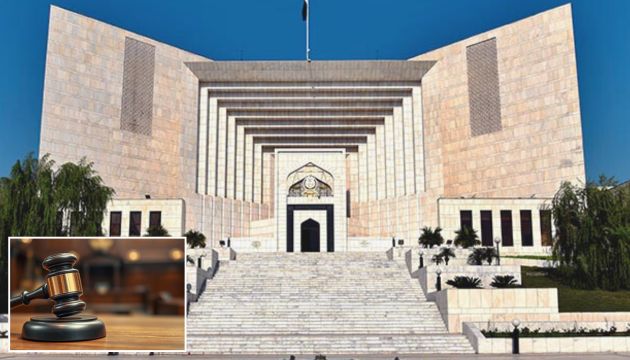ISLAMABAD: The Supreme Court of Pakistan has issued a written decision in a case about a government employee’s daughter who was denied a job after her father’s death.
According to a private media report, the court said in its decision that a woman’s identity, legal rights, and independence do not end after marriage.
The 9-page judgment was written by Justice Mansoor Ali Shah. The Supreme Court ruled that the daughter is eligible for a job in place of her father.
The court said it is illegal and unfair to deny married daughters jobs under the deceased parent’s quota.
According to the decision, under the KP Civil Servants Rules, all children of a deceased or medically retired government employee are eligible for jobs. The court said a clarification letter from a section officer cannot change these rules, and such executive instructions cannot override the law.
The Supreme Court stated that excluding daughters from the deceased employee’s quota based on marriage is discrimination. This violates Articles 25, 27, and 14 of the Constitution. The court added that marriage does not end a woman’s legal status, identity, or independence.
ALSO READ | Cm Maryam approves 13 new Sahulat bazaars across Punjab
The judgment said financial independence is a basic right, and a woman’s rights cannot depend on marriage. The Constitution gives every citizen individual rights, not based on marital status or social roles. In Islam, a woman also has full control over her property, income, and financial matters.
The decision noted that Pakistan has signed an international convention against all forms of discrimination against women. This convention bans job discrimination based on marriage.
The court said women’s economic and legal independence should be recognized, and traditions that deny women public rights due to marriage should end.
The Supreme Court said courts and government bodies should use gender-sensitive and neutral language in their decisions. Words reflecting patriarchal thinking go against constitutional values. The court added that its rulings generally apply to future cases.
The court canceled the decision to remove the woman from her job and ordered the relevant department to reinstate her with all past benefits.














